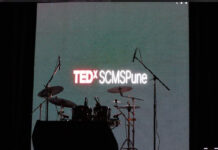During the recent EcoCity Revolution event here, Alistair Schneider, the CEO of Innouvo, interviewed Chris Sowa, a Global Vice President at Schneider Electric focused on innovation, new ventures, and strategy in the Energy Management Software business. The focus on this discussion is how we can drive a true EcoCity Revolution through improved sustainability and green innovation enabled by digitization. This is Part III of III of a EcoCity Revolution perspective.
Part III of III – How can we drive a global EcoCity Revolution?
Schneider:
This question is related to the USA, which is ranked number two in carbon emission. Do you think the new presidential administration is likely to make this a priority and rejoin the Paris Agreement?
Sowa:
President-elect Biden is already on record on this topic. He is planning to rejoin the Paris Accords on climate change on day one. I also expect even more hyper engagement at a state level, which is where we are already seeing it in places like California, which is mandating things like zero emission by 2035.
Schneider:
Singapore has been a leader in driving sustainability and energy efficiency for a while now, and they are thriving. Do you think the West should learn from them? And maybe I’ll piggyback on that question how we can better connect sustainability amongst city leaders internationally. Maybe we can have that sort of dialogue exchange between places like Boston and Singapore specifically. How can we learn from each other to accelerate the EcoCity Revolution? Since it is so important, I feel we need to make drastic measures to make it happen.
Sowa:
Yes. Absolutely! Singapore is doing a lot of fantastic things, and Schneider Electric has operations there, so we’re actively involved in some of those next generation buildings and in improving the efficiency of existing buildings. We should certainly learn from Singapore.
I think that Boston, because of the 100+ universities here, it is fair to call it an idea capital. There are a lot of people who are within the universities who can help us innovate new efficient models. I also know Boston needs to move beyond an incubator if ideas into an action capital for carbon reduction.
Schneider:
With the global perspective you have, what cities would you say are your top five cities, that are really role models that are inspiring you and you think are going in the right direction?
Sowa:
I think that Singapore is an easy one, but I’m not sure that I’m wholly satisfied with the way any of them are actually running. I think that we need to do a lot more in terms of measuring and managing the existing building stock within developed countries. I think 80% of building stock is going to be here for quite some time in United States, so we need to take action on existing building reinvention.
In places like India and China, there’s a whole new building stock that is being developed. I would look at it through the lens of what they’re doing with new efficient buildings and how China is even creating totally new energy efficient model cities to learn more about what is possible from new buildings.
In the United States, we really need to be in places like Boston, thinking about how we can make our existing building stock more efficient. I don’t think that people have really opened up this idea of building reinvention fully. We need to change regulations and permitting processes to enable existing building reinvention here.
I don’t think that people consider the importance of regulation to innovation. Regulations that support carbon reduction can create fantastic opportunities or if regulation is not adapting to opportunities can squelch innovation. An example, of not aligning regulation to support innovation can be found in the challenges faced in the conversion of office buildings to housing can be found in cities like Calgary, Canada that have experienced an economic bust in recent years due to a decline in oil revenue. The city leaders of Calgary identified the need for office space, however, existing building regulations were not adapted to enable and motivate developers and banks to convert massive excess office space to needed housing. We can contrast this strong government interventions in Singapore and China that are building the next generation of buildings in Asia. Particularly in China, there are a lot of really good things that China is doing at a massive scale, because of government regulations. I am optimistic that we’re going to learn a lot from some of the cities in China about the potential for trying out innovative technologies at scale.
Of course, in a number of ways operating in Asia is different, than in Europe and North America, because of the ability to capture and manage data. We saw an example in Toronto, where they pushed back on Google Sidewalk’s efforts to create a smart city that not all communities are as excited to have that kind of digital management and collection of data. Privacy issues that they come through digitization in cities needs to be considered. I think that there will be a cultural bias in the way cities adopt building digitization. For this reason, I don’t see any one city or even five cities as models that can be followed everywhere, each region needs to find its own aggressive ways to innovate to meet carbon reduction targets to reduce climate change impacts.
Schneider:
Excellent. So last question. We have investors on the call today, what would you say to investors? Is this a good time to invest in entrepreneurs in the green tech space, is this the golden age of green?
Sowa:
Well, first I’ll say, Schneider Electric, we are an investor in the green startup ecosystem too. Our Innovation at the Edge team, has over a 500 million Euro fund and we’re actively investing technologies that are driving the green revolution. So the short answer is not only do I think this the right time to invest, we at Schneider are actively doing it now. This is a great time to be investing in things like innovative energy storage solutions and digital solutions that help reduce carbon in buildings. We are actively looking. To the people in this conference managing startups in this space, and to the venture capitalists on the phone, we are interested in hearing from you if you have companies in this area. We should be partnering and investing together to scale green solutions as fast as possible.
Schneider:
Excellent. I think that’s a perfect way to end this discussion and a perfect message. Capital is here. If you have a great idea, submit it to Chris Sowa or to us, and we can help you achieve these objectives.
Thank you so much, Chris, for this great talk and we look forward to more interaction.
Chris Sowa’s full presentation at EcoCity Revolution and this interview at the end can be found here:
and all EcoCity Revolution presentations are found here
About the interviewee, Chris Sowa here
Chris Sowa has over 20 years of experience in driving innovation, strategy execution, and new ventures leveraging advanced technologies. He has a global track record of success in Europe, Asia, Australia, and the United States. As a global Vice President, Energy Management Software at Schneider Electric, Chris is developing a new billion-dollar cloud-based software business through strategic partnerships and acquisitions to support the design, building, and operations of next generation sustainable digital buildings. He is also leading strategy for this new business.
About the interviewer, Alistair Schneider here
Alistair Schneider is the CEO of Innouvo, a precision startup studio specializing in venture capital, product, commercialization, and network development. Alistair is also the president and co-founder of AI-Lean, an enterprise software. He provides executive leadership in marketing, venture capital, and global innovation ecosystem development for cities. His company, Innouvo, sponsors EcoCity Revolution, an annual conference dedicated to spurring changes needed and capturing opportunities arising from improving the sustainability of our cities.
(Syndicated press content is neither written, edited or endorsed by ED Times)
Read more:
Here’s What Shashi Tharoor’s Book, ‘The Battle Of Belonging’ Has To Say About Hindutva Movement




































